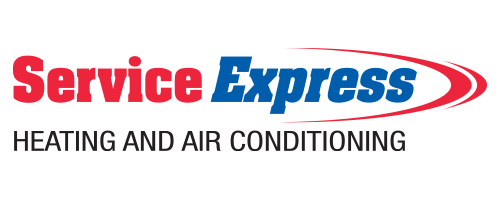Discover essential holiday HVAC tips to keep your home warm and cozy all season. From maintenance to energy-saving tricks, stay comfortable this winter!
Before we know it, the holidays will be upon us, and this means our homes will be swarming with guests looking forward to everything from watching football games to sitting down for that millionth viewing of National Lampoon’s Christmas Vacation. For most homeowners, this whole process begins with the tradition of decorating the house with twinkling lights and other festive touches, but unfortunately, they rarely consider their HVAC systems – notably during this crucial time. Similar to Halloween, there’s many ways you can prepare your HVAC system for the holidays.
We say “crucial” because your HVAC system is an essential home appliance that deserves attention while you’re making your living space look festive.
In this article, we’ll detail the significance of holiday gatherings for home comfort while stressing the need for HVAC efficiency as winter approaches.
Understanding Your HVAC System
Before we get into the nuts and bolts of holiday comfort tips, let’s first review some of the basic components of an HVAC system. In the same way a motor vehicle contains intricate components that work together to help it drive, heating and air conditioning systems boast various parts to regulate indoor temperature and air quality effectively.
The primary parts of an HVAC system incorporate:
- Main Unit – This can include central air conditioners, furnaces, heat pumps, or boilers as the primary heating and cooling units; other types of systems can include ground-source heat pumps, window/portable ACs, ductless mini-splits, and space heaters.
- Thermostat – This serves as the quintessential brain of your home’s HVAC system, controlling the on/off behavior of your heating and air conditioning based on preferred settings.
- Air Handler – This houses the necessary HVAC components for circulating chilled air throughout homes or buildings while maintaining a vital role in maintaining a comfortable indoor environment.
- Evaporator Coil/Heat Pump – This facilitates cooling via outdoor heat absorption as a refrigerant passes through it, causing the refrigerant to evaporate. Heat pumps, meanwhile, use the evaporator coil in heating and cooling modes.
- Condenser Coil – Collaborating with the indoor evaporator coil to regulate indoor temperatures, the condenser coil is integral to central air conditioning and heat pump systems and resides within the outdoor condenser unit – i.e., the large box next to your house.
- Heat Exchanger – Located inside the furnace, the heat exchanger absorbs heat from the combustion gases and transfers it to the surrounding air, ultimately providing warmth by distributing heated air through the ductwork.
- Ductwork – This is responsible for transporting conditioned air across a home or commercial structure and distributing it in living/working areas through air vents.
Some tips on how to identify issues with your HVAC system include:
- Check for dirty filters
- Check for dirty ductwork
- Check for problems with pilot lights and ignitions
- Look for a malfunctioning thermostat
- Identify tripped breakers and blown fuses
- Check for water leaks from the unit, uneven room temps, negative pressure, and leaky ducts
Preparing Your Home for the Holidays
Here, we’ll give you some advice on scheduling a maintenance check before the holidays and some tips for optimizing your home’s warmth through HVAC adjustments.
To begin with, the best way to ensure that your HVAC system is working is through maintenance – there’s no way around this. Routine maintenance can reveal minor heater/air conditioner problems before they become expensive while also possibly extending the life of your HVAC system. Further, scheduling HVAC maintenance prior to the family’s arrival is the best way to ensure that there are no surprises.
Optimizing a zoned HVAC system involves more than just the initial setup; using the flexibility of zoning to adapt temperature settings to your daily routine can go a long way toward optimizing your home’s comfort. Some specific tips we can offer include lowering the heating or cooling in unoccupied zones and adjusting temperatures based on the time of day or night.
Energy Efficiency and Cost Savings
Here’s a fun fact you may not be aware of: nearly half of the energy used in your home goes to heating and cooling. As such, making smart decisions about your home’s heating, ventilating, and air conditioning system can significantly impact your utility bills – to say nothing of your comfort.
Take the following steps to increase the efficiency of your heating and cooling system:
- Change your air filter regularly
- Tune up your HVAC equipment yearly
- Install a smart thermostat
- Seal your heating and cooling ducts
- Consider installing ENERGY STAR-certified heating and cooling equipment
- Ask about the proper installation of your new equipment
When it comes to upgrading your system for better efficiency, it is important to note that most residential air conditioners and furnaces last between 10 and 15 years. When the upgrade itch rolls around, you should look at this as an opportunity to increase your energy efficiency. Advances in heating and cooling tech have equated to more energy-efficient systems coming out every year. Consider:
- Smart thermostats
- Advanced air filtration systems
- Dehumidifiers
- UV lights
- Zoning
- Upgraded electrical panels
- Weatherproof siding
- Energy-efficient windows
- Insulation upgrades
HVAC Etiquette for the Holidays
In the winter, experts recommend that a thermostat be set to 68 degrees Fahrenheit when you’re home and 60 to 65 degrees when you’re asleep or away. You can set it higher, but this will ultimately reduce efficiency and lead to higher energy bills.
When it comes to managing HVAC usage during holiday gatherings, we can offer the following tips:
- Set the temperature a little lower than usual, given that the oven is most likely to generate added heat.
- Watch out for high humidity levels.
- Keep an eye on local conditions.
Long-Term Maintenance and Winter Preparedness
When creating a regular HVAC maintenance schedule, there are a number of suggestions we can make. The most frequent tasks are fairly simple to perform, and by taking care of these yourself, you can reduce your HVAC maintenance costs. These include checking and changing air filters, keeping indoor vents clean, and washing your outdoor unit.
When the weather starts to change in spring and fall, a licensed technician should be called in to perform seasonal maintenance in the areas of:
- Refrigerant leaks
- Thermostat malfunctions
- Electrical issues
- Ductwork leaks
Some tips about winterizing your home to complement your HVAC system include:
- Cleaning off and covering your external AC unit
- Sealing your ductwork
- Cleaning your ducts and air returns while changing your filters
- Testing and updating your thermostat
- Getting a professional furnace check and tune-up
Schedule Your Maintenance Today!
While most homeowners are busy preparing for holiday visitors and gatherings, it can be easy to forget about the HVAC system. It’s essential that you show your heating and cooling system a little love if you want to keep your home comfortable this holiday season.
Schedule a professional HVAC maintenance check with Service Express Heating and Air Conditioning today to ensure your holidays are as jolly as possible.
SOURCE: https://www.hvac.com/expert-advice/key-parts-of-an-hvac-system/

